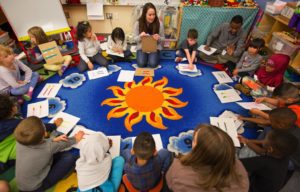By League of Education Voters Policy Team
We believe students come first. We are focused first and foremost on meeting the needs of every student.
We are dedicated to designing an equitable education system that serves all students based on their strengths, supports their needs, and provides the resources they need to be successful.
We are committed to working to close gaps experienced by historically and systemically underserved students— including students of color, students in poverty, students qualifying for special education services, students learning English, and students impacted by trauma. We believe this will lead to all students experiencing greater success and reaching their full potential.
WHY WE SUPPORT HOME VISITING
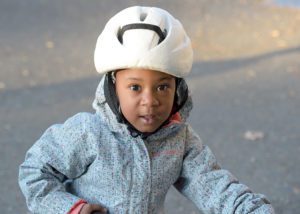 In 2018, our state had a 30-point kindergarten readiness gap between kindergarteners from low income families and their non-low income peers. Kindergarten readiness is one variable that supports kids to do well in elementary school and beyond, and the income-based opportunity gap means that children from low income households will have more work to reach grade level than their peers.
In 2018, our state had a 30-point kindergarten readiness gap between kindergarteners from low income families and their non-low income peers. Kindergarten readiness is one variable that supports kids to do well in elementary school and beyond, and the income-based opportunity gap means that children from low income households will have more work to reach grade level than their peers.
Home visiting – an early childhood education strategy in which a nurse or other professional coordinates services to families in their home – is an intervention proven by four decades of research to significantly improve kindergarten readiness for children born to low income families. Improved educational outcomes also include higher grade point averages (GPAs), higher language scores, higher achievement scores at age nine, and even higher high school graduation rates (1). Expanding high-quality home visiting programs in Washington state not only allows us to maximize our K-12 investments – it also helps parents provide the nurturing kids need at just the right point in their lives. Home visiting improves physical and mental health and development (2), and decreases the likelihood of abuse or neglect (3) while improving family economic self-sufficiency (4). Twenty years of academic research confirms that home visiting can change the trajectory of a child and their entire family. Read More
 In our podcast, we interview policymakers, partners, and thought leaders to spotlight education policies, research, and practices so that together we can create a brighter future for every Washington student.
In our podcast, we interview policymakers, partners, and thought leaders to spotlight education policies, research, and practices so that together we can create a brighter future for every Washington student. In 2018, our state had a 30-point kindergarten readiness gap between kindergarteners from low income families and their non-low income peers. Kindergarten readiness is one variable that supports kids to do well in elementary school and beyond, and the income-based opportunity gap means that children from low income households will have more work to reach grade level than their peers.
In 2018, our state had a 30-point kindergarten readiness gap between kindergarteners from low income families and their non-low income peers. Kindergarten readiness is one variable that supports kids to do well in elementary school and beyond, and the income-based opportunity gap means that children from low income households will have more work to reach grade level than their peers.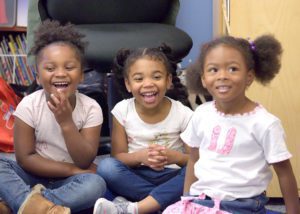 High-quality early childhood education can ensure that kids start school kindergarten ready, and increase test scores throughout their elementary and high school education (1). These benefits are particularly important for kids from low income families, who face more income-related stress and are more likely to have all parents working. Currently, only 33% of kindergarteners from low-income households enter school fully kindergarten ready – nearly half the rate of kindergarten readiness for their non-low income peers (2).
High-quality early childhood education can ensure that kids start school kindergarten ready, and increase test scores throughout their elementary and high school education (1). These benefits are particularly important for kids from low income families, who face more income-related stress and are more likely to have all parents working. Currently, only 33% of kindergarteners from low-income households enter school fully kindergarten ready – nearly half the rate of kindergarten readiness for their non-low income peers (2).  My name is Lauryn Terry and I am 14 years old from Olympia, WA. When I was 3, I was an ECEAP student. ECEAP, the Early Childhood Education and Assistance Program, taught me a lot of things. I remember being little and people not being able to understand me when I was talking. When I went to preschool, people there helped me to communicate better. I didn’t know it then, but I know now that they helped my mom get me the help I needed to get surgery on my ears, speech therapy, and to learn how to talk and make me able to hear.
My name is Lauryn Terry and I am 14 years old from Olympia, WA. When I was 3, I was an ECEAP student. ECEAP, the Early Childhood Education and Assistance Program, taught me a lot of things. I remember being little and people not being able to understand me when I was talking. When I went to preschool, people there helped me to communicate better. I didn’t know it then, but I know now that they helped my mom get me the help I needed to get surgery on my ears, speech therapy, and to learn how to talk and make me able to hear.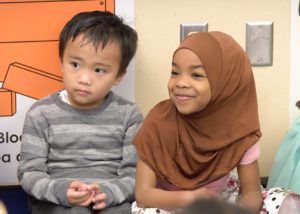 When Washington state five-year-olds arrive in kindergarten each year, they are beginning an educational journey on which some of them are already behind their classmates. Our state has a 30-point kindergarten readiness gap – only 31% of kindergarteners from low income families are fully school ready, compared to 60% of their non-low income peers (1).
When Washington state five-year-olds arrive in kindergarten each year, they are beginning an educational journey on which some of them are already behind their classmates. Our state has a 30-point kindergarten readiness gap – only 31% of kindergarteners from low income families are fully school ready, compared to 60% of their non-low income peers (1).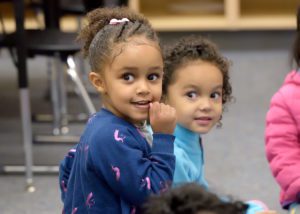 90% of human brain growth happens from birth to age six, but 98% of our state’s educational investments happen after kids reach age five.
90% of human brain growth happens from birth to age six, but 98% of our state’s educational investments happen after kids reach age five.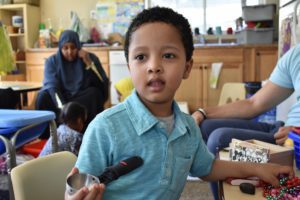 South Seattle’s Voices of Tomorrow
South Seattle’s Voices of Tomorrow 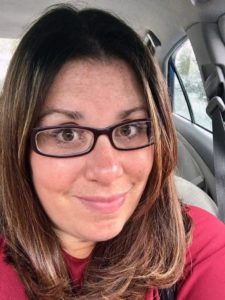 “What is ECEAP?” This is the question that I have been asked countless times and I still get so excited to answer it. While the boring, generic answer would be Washington state’s Early Childhood Education and Assistance Program, I never respond with this because to me, the name does not do the program justice. I would find it more aptly named if it were called A Family’s Second Chance, or just simply Opportunity Early Learning, because that’s what the program has meant for me and my family.
“What is ECEAP?” This is the question that I have been asked countless times and I still get so excited to answer it. While the boring, generic answer would be Washington state’s Early Childhood Education and Assistance Program, I never respond with this because to me, the name does not do the program justice. I would find it more aptly named if it were called A Family’s Second Chance, or just simply Opportunity Early Learning, because that’s what the program has meant for me and my family.